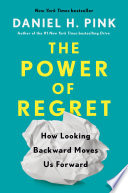

Regret is often viewed negatively, but this book reframes it as a powerful emotional tool that can provide insights into our values and priorities. By understanding the nature of regret, we can learn to embrace it rather than avoid it. The author discusses the psychological underpinnings of regret, including how it manifests in our lives and the common themes that arise from regrettable decisions. This understanding allows individuals to reflect on their past decisions and recognize patterns that may lead to future regrets. The book emphasizes that regret is a universal experience, and by acknowledging it, we can cultivate a deeper understanding of ourselves and make more informed choices moving forward.
Continue readingThe author categorizes regrets into four types: foundational regrets, boldness regrets, moral regrets, and connection regrets. Foundational regrets stem from failures to make necessary foundational choices, such as education or career paths. Boldness regrets arise from missed opportunities to take risks, while moral regrets relate to actions that conflict with one's ethical standards. Connection regrets highlight the importance of relationships and the pain of lost connections. By identifying these types, readers can better understand their own regrets and the motivations behind them, leading to more intentional decision-making.
Continue readingRegret plays a crucial role in shaping our future decisions. The book explores how the anticipation of regret can be a powerful motivator for change, encouraging individuals to consider the long-term implications of their choices. By analyzing past experiences and the regrets that arose from them, readers can develop a framework for making better decisions in the future. The author suggests that instead of fearing regret, we should use it as a guide to navigate our lives, helping us to weigh our options more carefully and align our choices with our core values.
Continue readingRegret can serve as a valuable teacher if we allow it to. The book emphasizes the importance of reflection and learning from our past mistakes. By examining the reasons behind our regrets, we can gain insights that inform our future actions. The author provides practical strategies for reflecting on regrets, including journaling and discussing feelings with trusted friends or mentors. This process of reflection not only helps in understanding the regret but also in fostering personal growth and resilience, enabling individuals to approach future challenges with a clearer perspective.
Continue readingThe book advocates for transforming regret into positive action. Instead of being paralyzed by regret, readers are encouraged to channel that energy into constructive behaviors. The author discusses various techniques for reframing regret, such as setting new goals based on past experiences and using regret as a catalyst for personal development. By taking proactive steps, individuals can turn their regrets into motivation for change and improvement, ultimately leading to a more fulfilling life.
Continue readingRegret is not just an individual experience; it is also deeply social. The book explores how our regrets can influence our relationships and how sharing these experiences can foster deeper connections with others. The author highlights the importance of vulnerability in discussing regrets, as it can lead to empathy and understanding among peers. By recognizing that others share similar feelings of regret, individuals can find solace and support, ultimately strengthening their social bonds and creating a sense of community.
Continue readingThe overarching message of the book is that embracing regret can lead to a more meaningful and purpose-driven life. The author argues that by accepting our regrets and learning from them, we can cultivate a sense of authenticity and alignment with our true selves. The book encourages readers to view regret not as a burden, but as a valuable part of the human experience that can guide us toward more fulfilling choices in the future.
Continue readingThe reading time for The Power of Regret depends on the reader's pace. However, this concise book summary covers the 7 key ideas from The Power of Regret, allowing you to quickly understand the main concepts, insights, and practical applications in around 20 min.
The Power of Regret is definitely worth reading. The book covers essential topics including Understanding Regret, Types of Regret, The Role of Regret in Decision-Making, providing practical insights and actionable advice. Whether you read the full book or our concise summary, The Power of Regret delivers valuable knowledge that can help you improve your understanding and apply these concepts in your personal or professional life.
The Power of Regret was written by Daniel H. Pink.
If you enjoyed The Power of Regret by Daniel H. Pink and want to explore similar topics or deepen your understanding, we highly recommend these related book summaries:
These books cover related themes, complementary concepts, and will help you build upon the knowledge gained from The Power of Regret. Each of these summaries provides concise insights that can further enhance your understanding and practical application of the ideas presented in The Power of Regret.